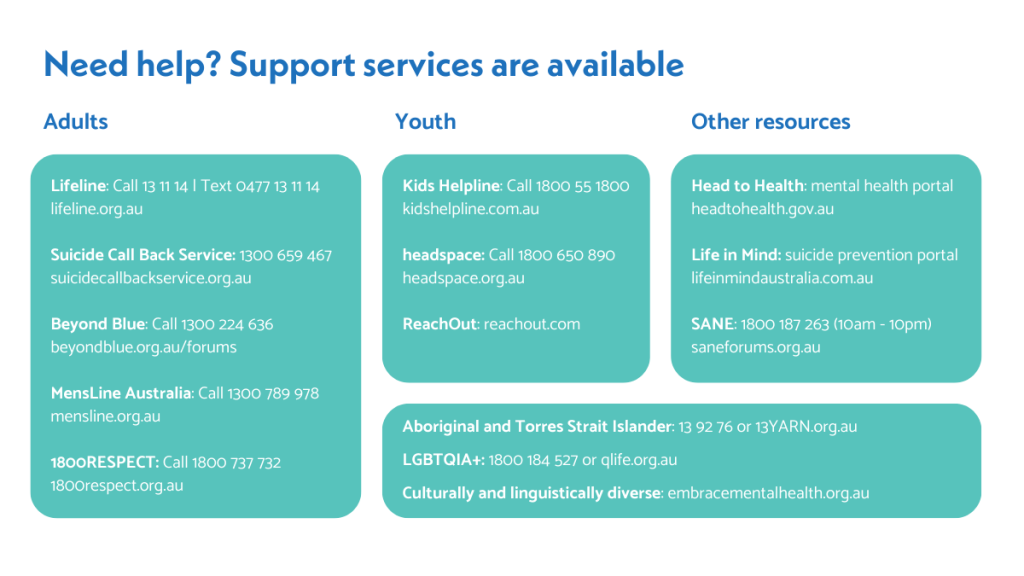Talking about money is often an uncomfortable subject, even more so if you’re having financial troubles. When money is tight, it’s normal to be stressed out and anxious about the future. And you probably aren’t the only one feeling the pinch – entire families often feel the brunt of financial pressures, particularly if it means making big lifestyle changes.
Instead of trying to hide it or leave your teens out of the conversation, it can actually be more helpful to talk to them so they can understand what’s going on and feel more confident to tackle these issues on their own. So here are some tips for talking with your teen about financial stress.
Is it really OK to talk to teens about money troubles?
As parents, we sometimes bottle things up, worried about burdening our family with extra pressure. Sometimes we feel it’s our responsibility to deal with these “adult problems” on our own. But our teens tend to pick up more than we realise – and if things haven’t been going well, they probably already have an idea about what’s going on.
Being open and honest with your teens is a great way to build trust and reassurance, and can make it easier to discuss potential lifestyle changes. Plus, you can help equip them to deal with money challenges they might face in the future.
How to talk with your teens about financial stress
If you’re feeling unsure about how to approach the situation, we have some tips you might find helpful.
Before the talk
- Plan what you’re going to say. This will help you stay focused and calm, and you can decide exactly how much you’ll tell your teen.
- Find the right time and place. Make sure it’s somewhere you’re all comfortable, and that you have plenty of time to talk without distractions (including putting phones on silent and switching off the TV).
- Make sure you’re in the right head space. If you or your teen are already frazzled or busy with something else, it might be best to leave it for another day.
During the talk
- Keep calm. Watch your body language and speak clearly and slowly. If things get heated or too stressful, it’s OK to take a time out and try again later.
- Try to stay positive. It can be tough, but avoid spiralling into “what if” scenarios that only serve to further stress your teen (and you) out.
- Be realistic. Don’t make any promises you know you can’t keep, but make sure you reassure your teens you’ll be there for them no matter what.
- Let them talk too. Encourage your teen to actively participate in the conversation. Let them ask questions and listen carefully to their concerns and opinions.
After the talk
- Reassure your teen. Let them know that you’re going to work through this together, and that they can always come to you if they have more questions or just want to talk.
- See how they feel. Make sure they understand what’s happening and feel confident about working together to solve the problem.
- Practise self-care. This goes for both you and your teen. It can be hard to relax when money’s tight, but looking after your mental health is still so important.
Going forward
If you’re currently short on cash, some of you and your teen’s favourite activities might need to be put on the sidelines for now. Convincing your teen to give something up can be tricky, so try to suggest other things to do instead that won’t break the bank, such as:
- Going for a walk together (bonus if you bring the dog too).
- Playing board games or sports in the backyard.
- Instead of buying a new game, replaying their favourite.
- Take up a new hobby.
- Participate in free local community events, like festivals, fun days, art and gallery exhibitions, and library workshops.
- Spending time with friends.
Finding more support
There are people and services out there to help when you’re financially stretched. Here are some things to try:
- Talk to your teen’s school. Many schools are willing to be flexible or put a plan in place if you’re struggling to pay for school fees, uniforms, or other important supplies.
- See if bills can be deferred. It’s not a permanent solution, but not having to worry about that looming electricity, phone, or internet bill for a month can provide some relief.
- Research government support options. There are usually some government support payments you can access, particularly for families.
- Keep in touch with family and friends. Don’t be too proud to accept if your friends or other family members offer support. Even just having someone to talk (or vent) to can be a big help.
More tips for parents
We have lots of other blogs on our website for parents – check them out here.



